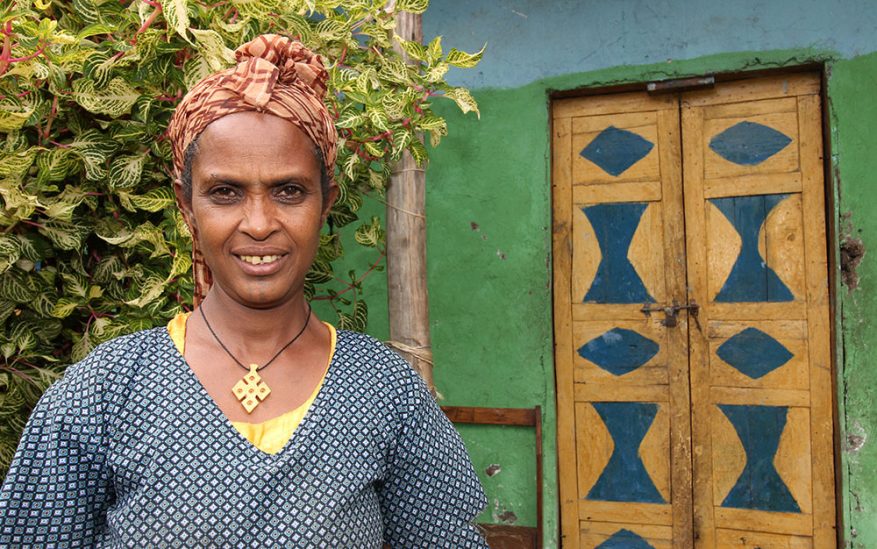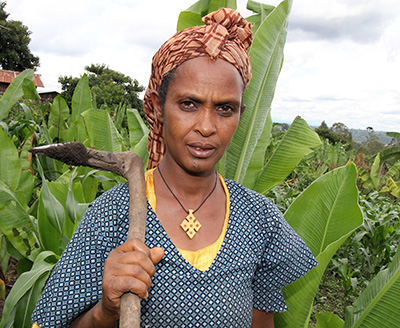An ancient crop is providing answers to a newer problem confronting small-scale farmers in hot, dry regions of Ethiopia.
Teff, the annual cereal grass that has been a part of the staple diet of Ethiopians for millenia, is also providing a route out of poverty for women like 35 year old Tsedu Behutiyo.
Tsedu is a producer of teff seed, which she grows on her small farm in Ambelta District of Ethiopia’s Oromia Province, close to Lake Ziway.
She ‘multiplies’ teff seed from improved breed seed that she received from Self Help Africa, and sells it to other farmers to plant, through her local farmers cooperative.
Teff seed is a profitable cash crop, and has enabled Tesdu to buy four oxen which she uses to plough her own land, and leases to other local farmers to do their ploughing. She has also invested in poultry which provides her family with an additional source of food and income.
A mother of four school-going children, Tsedu says that the income she is earning as a seed producer has also allowed her to send her kids – Aster (18), Testanesh (16), Isiak (12) and Dawit (8) – to school.
Her current plan is to save enough money to buy land close to town, and build a house that will put her children within easy walking distance of the local high school.
Tsedu is amongst 114 farmers in her district who were trained by Self Help Africa as teff seed producers in a project that has introduced climate-smart agricultural solutions to small-scale farmers in southern Ethiopia.
Teff is native to the country, and is believed to have been domesticated more than 6,000 years ago. Its shallow fibrous root form a massive root system that make the plant resistant to both drought and waterlogging. Teff seeds are among the smallest of all cereal grains. The name teff is thought to originate from the Amharic (Ethiopian) word teffa, which means “lost” and likely refers to the minute seeds.


